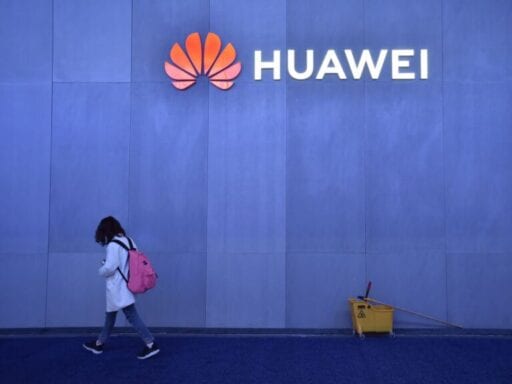It’s a move that could escalate tensions between Washington and Beijing.
US federal prosecutors went after Chinese telecommunications giant Huawei for financial fraud in a sweeping 13-count indictment unsealed Monday, and announced 10 additional charges against Huawei and its US subsidiary for allegedly stealing trade secrets. Both indictments could escalate tensions between Washington and Beijing — right as the two try to sort out their trade war.
The first indictment alleges that Huawei and one of the company’s subsidiaries, Skycom Tech Co. Ltd., engaged in bank fraud and wire fraud and evaded US sanctions against Iran.
Prosecutors also charged Huawei’s CFO Wanzhou Meng in the indictment, including with bank and wire fraud. Meng, who is the daughter of Huawei’s founder, was detained by Canadian authorities in December, at the request of US law enforcement who is seeking her extradition. China has since retaliated, detaining multiple Canadian citizens, including sentencing one to death for alleged drug trafficking.
The second indictment alleges, that, starting in 2012, Huawei tried to steal trade secrets from T-Mobile. The case stemmed from a 2014 civil suit, according to the New York Times.
China has previously criticized the US’s efforts to crack down on Huawei. “One country has the right to protect the information security of its own, but that gives it no reason to impede or even strangle the lawful and legitimate operations of an enterprise, just based on some non-existent excuses and by the pretext of security,” Chinese Foreign Ministry spokesperson Geng Shuang said at a press conference on Monday in response to a question about the US pressuring allies to reconsider its ties to Huawei.
But President Donald Trump’s administration and many Republican and Democratic lawmakers disagree, and see Huawei as a serious threat to US national security and business interests. Huawei is banned from bidding on US contracts over fears Chinese intelligence will use it as a backdoor to spy on the US. The US has also been pressuring allies to reject plans for Huawei’s 5G network — a next-generation version of mobile network technology — which the administration fears will hasten China’s global dominance.
“These charges lay bare Huawei’s blatant disregard for the laws of our country and standard global business practices,” FBI Director Christopher Wray said in a statement. “Companies like Huawei pose a dual threat to both our economic and national security, and the magnitude of these charges make clear just how seriously the FBI takes this threat.”
What’s in the big Huawei-Meng indictment
The bulk of the charges stem from a Huawei scheme to conceal its business activities in Iran, in violation of US sanctions against the Middle Eastern nation since about 2007.
Huawei allegedly lied about its relationship with a subsidiary called Skycomm Inc, which did business in Iran. Huawei misrepresented the relationship to US banks, which would not have legally been able to do business with the telecom giant had they known. Instead, Huawei was able to conduct millions in US-dollar transactions, all while running afoul of US law.
“These alleged false claims led banks to do business with the company, and therefore to unknowingly violate our laws,” acting Attorney General Matthew Whitaker at a Monday press conference.
Meng, according to prosecutors, also lied about the relationship between Huawei and Skycomm, including in a 2013 presentation to one of Huawei’s major banking partners.
Prosecutors also say that when Huawei became aware of this investigation in 2017, the company tried to obstruct justice by “destroying and concealing evidence.”
Both this indictment and the one involving T-Mobile are big deals. Huawei is one of the world’s largest tech companies, and has been slowly and steadily expanding its reach worldwide through its consumer electronic products and telecommunications network, specifically through its 5G network.
As Vox’s Emily Stewart wrote in December, after Meng’s arrest in Canada:
For years, congressional committees, the FBI, the National Security Agency, and others have flagged close ties between Huawei and the Chinese Communist Party, and the US even banned the company from bidding on government contracts. At a Senate Intelligence Committee hearing in February, top US intelligence chiefs said Huawei and another Chinese tech company, ZTE, posed potential national security risks to the US and warned American companies about doing business with them.
These latest indictments are bound to confirm suspicions about Huawei’s practices in the US and abroad. What’s more, they come as the US and China are also trying to hash out a trade deal after months of tit-for-tat tariffs — and these actions against one of China’s major companies could complicate those efforts.
It remains a “warning shot” to Beijing, one that has serious global implications.
Read the Huawei/Skycomm indictment below, or at this link.
Read the Huawei/T-Mobile indictment at this link.
Author: Jen Kirby
Read More



